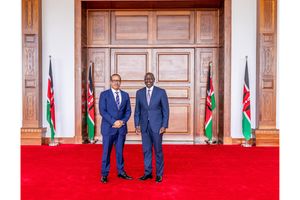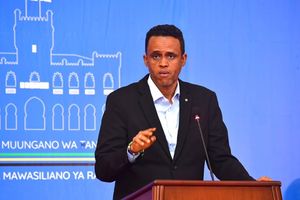Kenya grants citizenship to stateless Pemba community after 100 years

President Williams Ruto has awarded citizenship to the Pemba Community. PHOTO | KENYA STATE HOUSE
What you need to know:
- The community settled in Kenya about a century ago but were never recognised at independence in 1963.
- It is believed they originally came from the island of Pemba in the Zanzibar Archipelago off mainland Tanzania.
Kenya on Friday awarded citizenship to the Pemba community, ending decades of statelessness for a marginalised people in a historic move hailed by the UN refugee agency.
President William Ruto issued ID cards, birth certificates and passports at a ceremony in Kilifi that marked the completion of the registration process for all 7,000-odd members of the community.
"This, effectively, ends Pemba community's statelessness and marginalisation that has lasted for close to 100 years," Ruto said in the city on Kenya's east coast.
The move finally affords the Pemba full access to public services like schools, healthcare, social security and the right to work which they have long been denied.
The community settled in Kenya about a century ago but were never recognised at independence in 1963.
It is believed they originally came from the island of Pemba in the Zanzibar Archipelago off mainland Tanzania.
Most today still live along Kenya's coast.
Ruto announced in December that the government would begin the process to formally recognise the Pemba as citizens.
UNHCR said Kenya had made "important strides" in eliminating statelessness in recent years by extending citizenship to thousands of others from previously unrecognised groups like the Makonde and Shona.
"It is a great example of how states can put an end to statelessness and open the way for people caught up in this dreadful situation to come out of the shadows and participate fully in society," said the UN High Commissioner for Refugees, Filippo Grandi.





